Close UP
Yangon Karuta Project ~Informing people about the "status quo" in Myanmar, while conveying peaceful and beautiful daily life.~
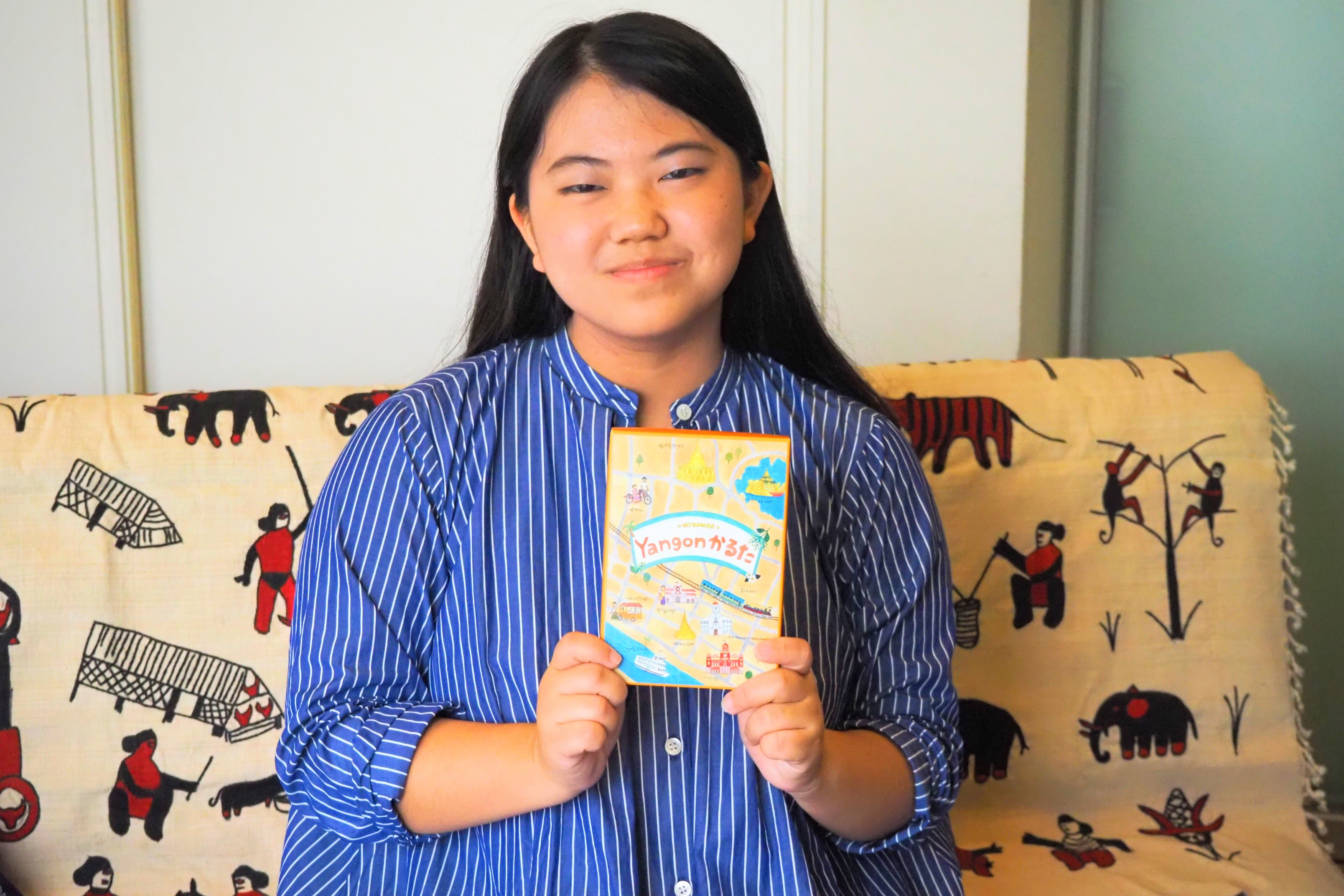
"I want to increase the number of Myanmar's fans." With this thought in her mind, Ms. Yuna Nonaka launched the Yangon Karuta Project. Why did a high school student living in Japan start an organization to help people become interested in Myanmar? We interviewed Ms. Nonaka to learn more about the project, and her thoughts on the project.
The world moves when those who are not involved understand.
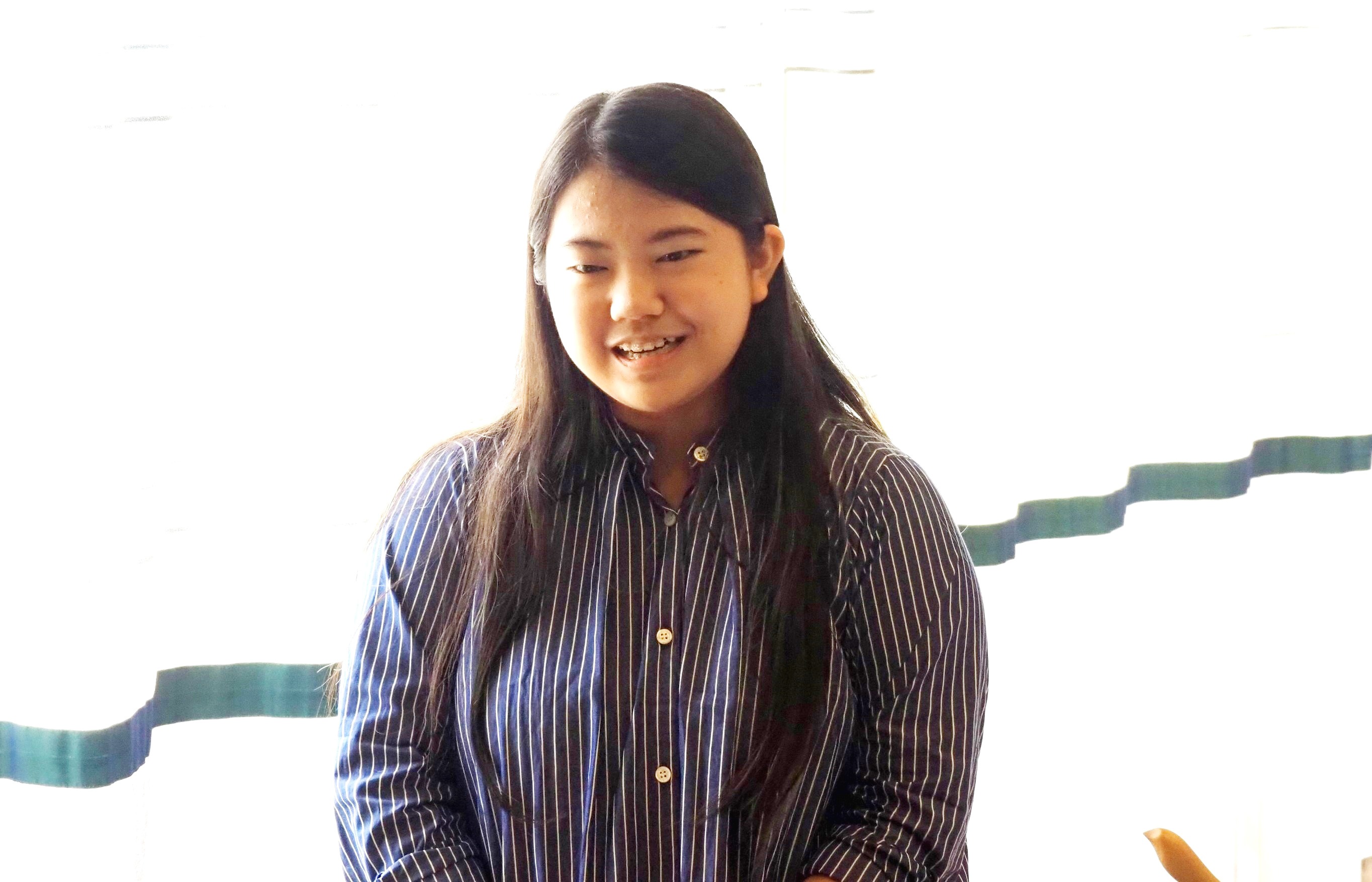
The Yangon Karuta Project was launched in March 2021. It was only one month after the coup broke out in Myanmar.
"I had been living in Yangon, Myanmar with my family since 2019, due to my parent's work. I was in Yangon when the coup happened. When I woke up in the morning as usual, my father told me that the coup had occurred and it was a big shock to me that my daily life and the peaceful town I had been living in suddenly changed. At night the Internet was cut off, and in the morning (as the Internet was restored), we would receive news of the devastating situation that had occurred in many parts of Myanmar. I dreaded the morning's arrival every day. On the other hand, I was deeply moved by the peaceful demonstrations of Myanmar people who were singing songs and handing flowers to police officers, even in the midst of chaos."
At the time, Ms. Nonaka was already scheduled to return to Japan to attend high school. Returning with her family shortly thereafter, she kept the situation in Myanmar in mind. However, after returning to her homeland, she felt a great sense of unease.
"When I told people that I had been living in Myanmar until recently, I was sometimes approached by people who said, 'That's where the civil war is going on. It's good that you came back from a dangerous country.' Myanmar is a beautiful country with a rich culture. I wondered why everyone (in Japan) was so indifferent, and saw it as someone else's problem. However, in hindsight, I too have been indifferent to the problems of other ethnic groups. I hope many people will consider Myanmar's problems as their own. I believe that the world will move when people who are not parties to a problem understand it. That is why I decided to launch this (Yangon Karuta) project with my older brother and younger brother."
Making fans of Myanmar by playing a karuta game.
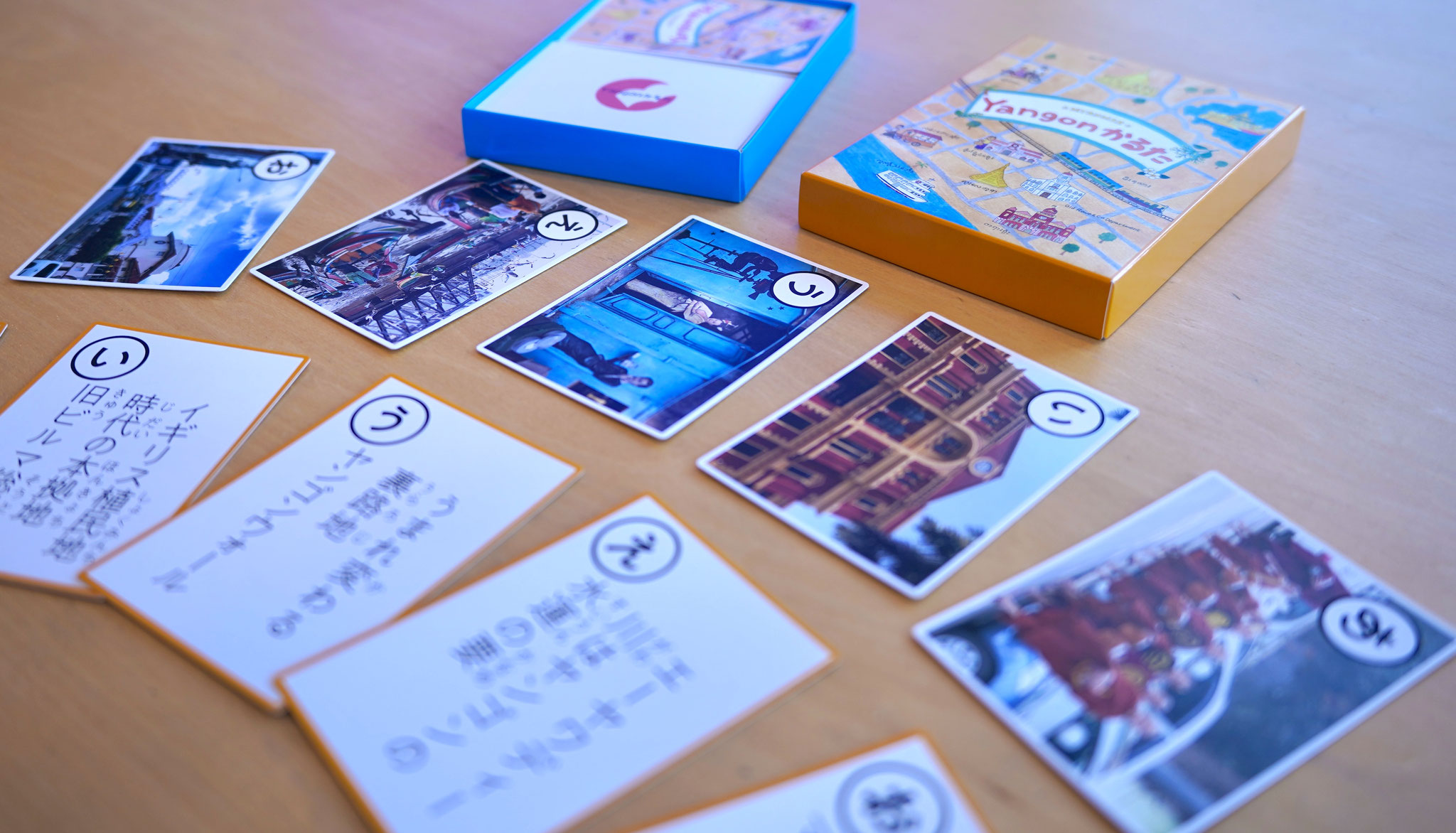
Ms.Nonaka's choice of karuta as a method of introducing Myanmar was based on her realization that, even in learning, amusement is necessary. "After returning to Japan, I took to the streets to raise funds for Myanmar, but I felt that people walking around town tried to avoid getting involved. I realized that sad information alone was not enough to get the message across or to be heard. So, we decided to present the appeal of Myanmar. Once people become fans of Myanmar, more and more might actively seek out information on their own. Fortunately, during our stay in Yangon, my family and I took many pictures of the city. Using these photos, we decided to make a deck of karuta (playing cards) so that everyone, from small children to the elderly, may enjoy learning about Myanmar."
In creating the karuta deck, Ms. Nonaka and her family put a lot of thought into conveying the way of life and existence of the people who actually live in Yangon. For example, one card in the deck, Yangon Wall, a Back Alley to Be Reborn, describes a popular spot on Instagram.
"Young artists cleaned up a trash-filled back alley and painted a wall to create the Yangon Wall. The beautifully colored alley is no longer littered with garbage and has become a place for young people to hang out. We would like many people to know that there is such a wonderful place in Yangon," says Ms. Nonaka.
Repeated Proofreading with Experts – and Crowdfunding - to Produce Yangon Karuta
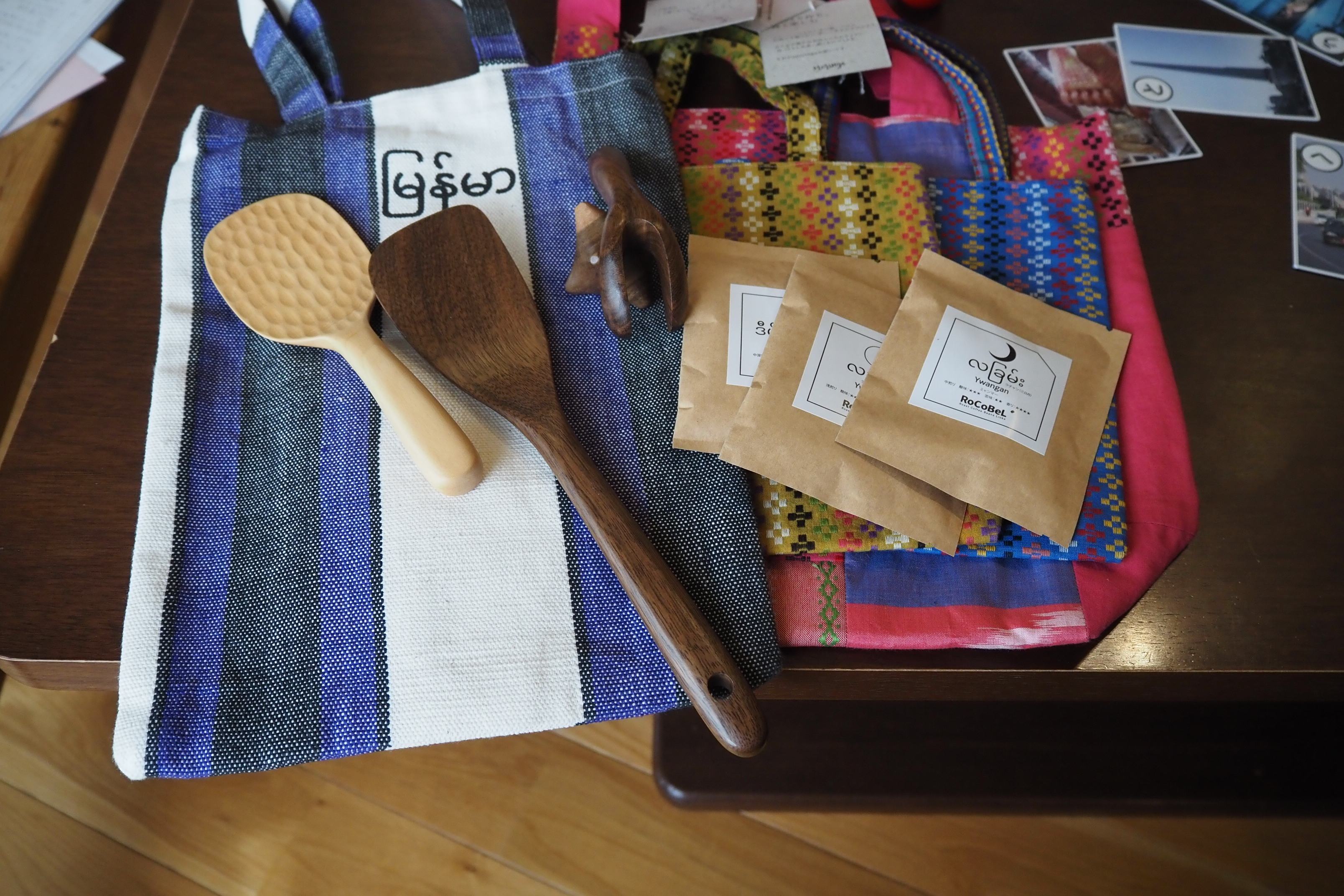
The production of the Yangon Karuta deck was carried out with the help of various people.
"I made a draft but was concerned about writing Burmese words in katakana. I contacted a variety of people, including university professors and interpreters, to ask for their help in proofreading texts, from a professional point of view."
What Ms. Nonaka says was even more difficult than the question of notation was the verification of the cultural aspects. Myanmar is a multi-ethnic country with 135 ethnic groups. Ms. Nonaka wondered how much consideration to give to the backgrounds and sentiments of people of various ethnic backgrounds.
"For example, a card that says Variety of People, One Country, Multi-ethnic Nation, introduces the eight major ethnic groups in Myanmar; the Kachin, the Karen, the Kayah, the Chin, the Mon, the Shan, the Rakhine, and the Burma. I thought that I should take other ethnic groups into consideration and list more of them. But if I introduced all of them, it would be a bit confusing. I agonized over it but, in the end, I decided to prioritize ease of understanding, in consideration of the Japanese people who will play (our) karuta game."
After four months of proofreading and more proofreading, the manuscript was completed. Then, to commercialize Yangon Karuta, Ms. Nonaka decided to conduct a crowdfunding campaign.
"At first, the idea (of crowdfunding) was completely out of the scope of my imagination. However, I became interested in it after a teacher at a Japanese school in Myanmar suggested that crowdfunding itself could be a way to get the word out about Myanmar. I worked very hard to create the crowdfunding page to get the information out to a wide range of people."
Ms. Nonaka's efforts paid off, and the goal of 1.5 million yen was reached 100% within two weeks. The final total raised was over 3 million yen.
I myself have no power, so I introduce Myanmar together with various people.
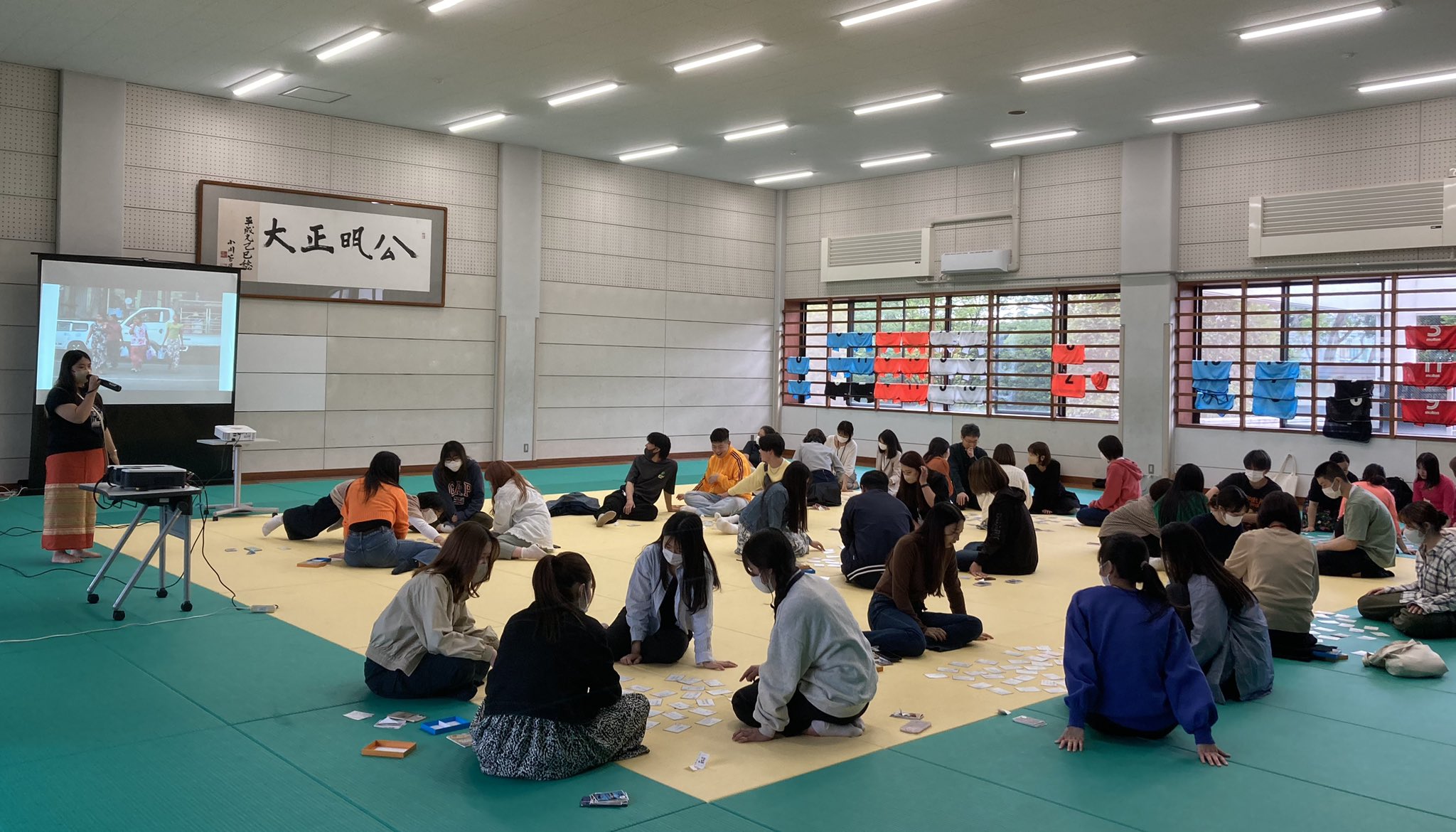
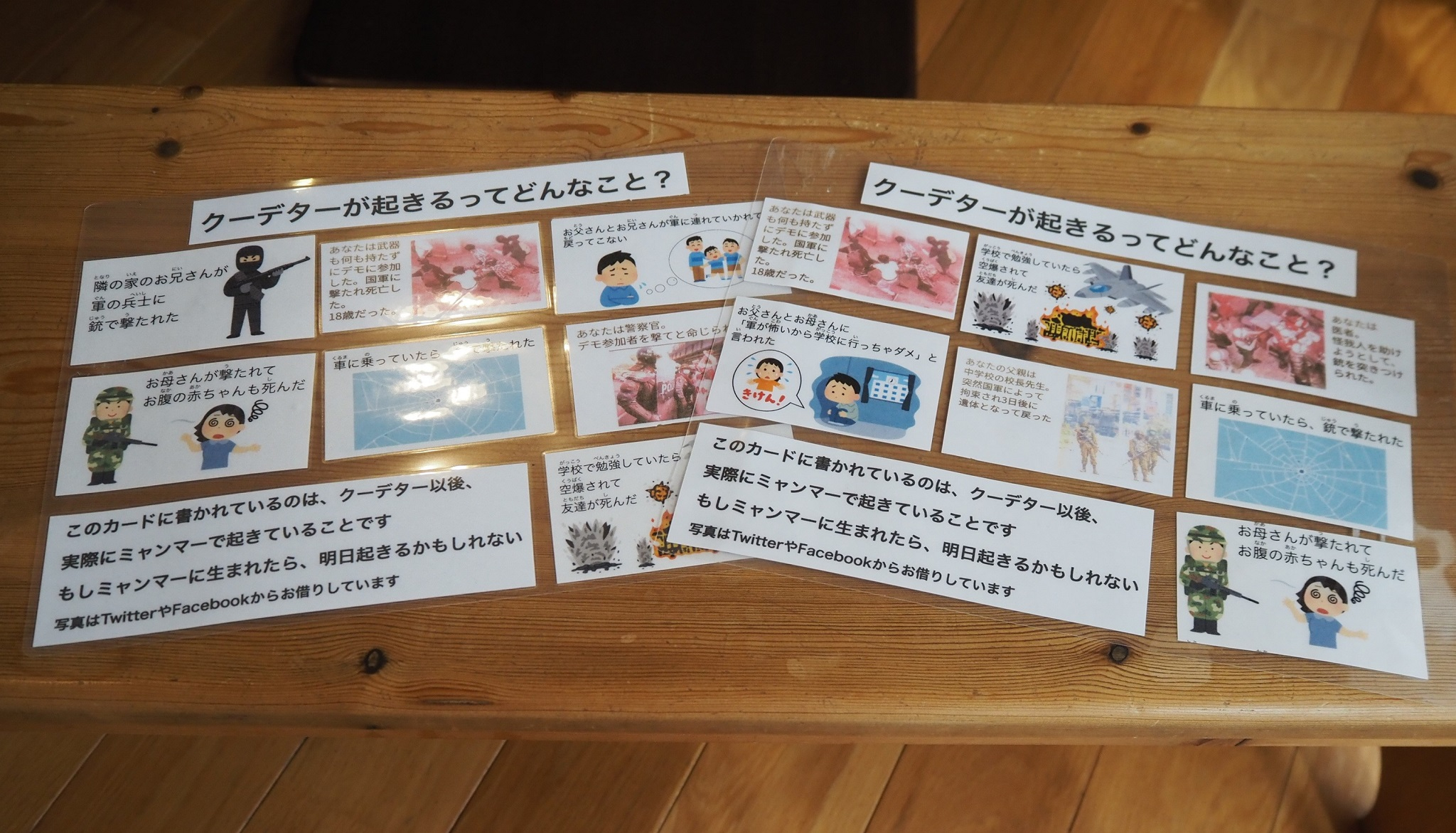
Since Ms. Nonaka started her organization, the Yangon Karuta Project has held – or participated in - more than 40 events. Nonaka has put a lot of thought into the events she organizes. When Ms. Nonaka introduces this karuta deck, she uses a projector to show videos and photos of landscapes taken in Myanmar. In order to let people know about what was happening to the people of Myanmar during the coup, Ms. Nonaka not only explained in words but also asked participants to draw illustrated cards as a lottery. Many of the things described with illustrations might happen to you if you lived in Myanmar. The participants were astonished by the horrifying reality that popped up when they opened the cards they had drawn.
Many of the events of the Yangon Karuta Project are held in collaboration with various people and organizations. Ms. Nonaka has a certain passion for planning collaborative events.
"I have no connections, nor network of contacts, and I don't believe I have any power of my own. Because I have no power, I have to ask for someone to help me. That's why, when I started crowdfunding (for the Yangon Karuta Project), I purchased products from a Myanmar import goods store as a return gift (for the crowdfunding) and asked the store owner to help me publicize the project. Our events are organized in cooperation with cafes, restaurants, photographers, and many others. When I cooperate with others, my power is not 'added to' but 'multiplied' and doubled. That's how I feel."
Achieving a society in which the existence of minorities is protected.
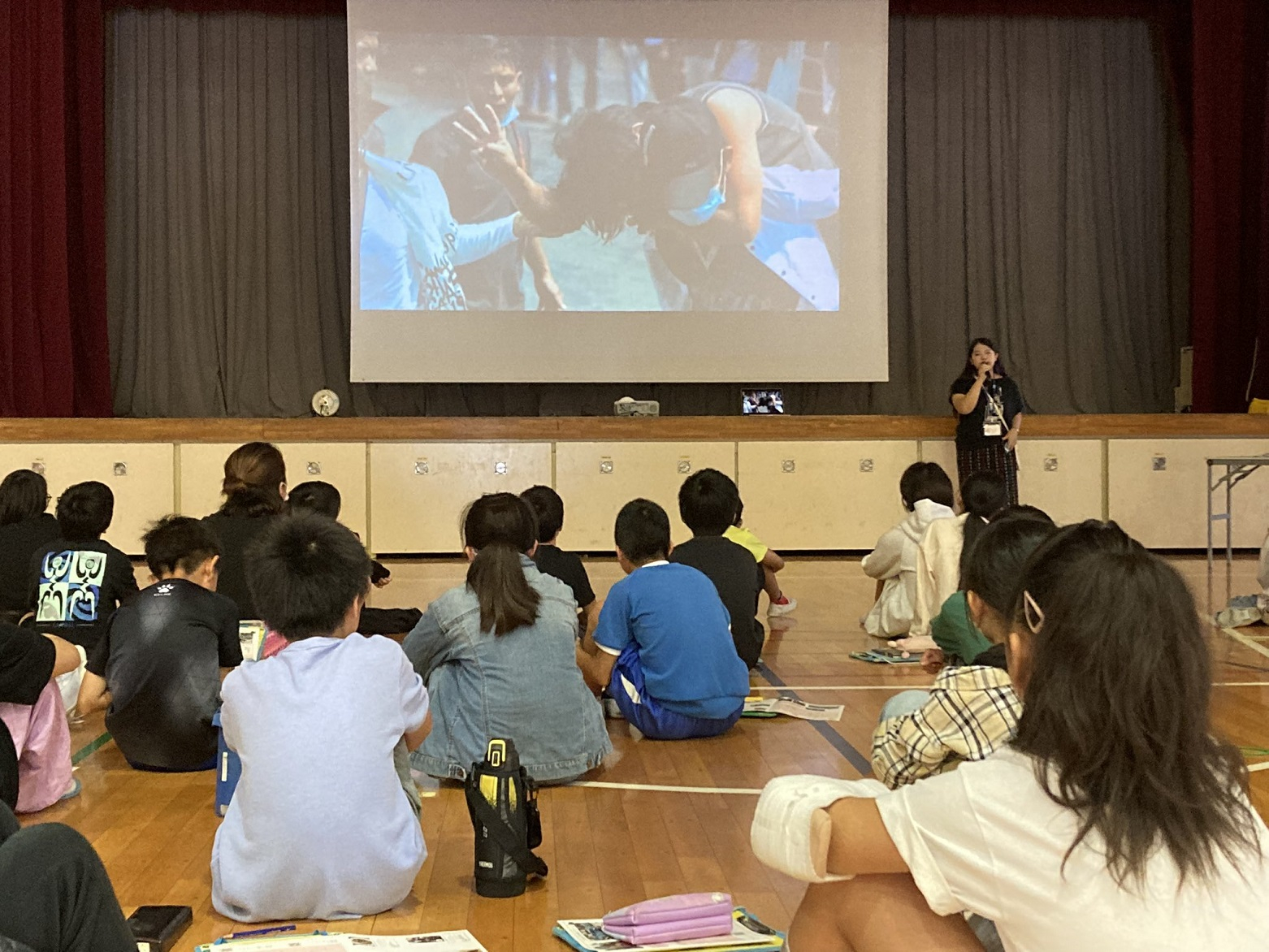
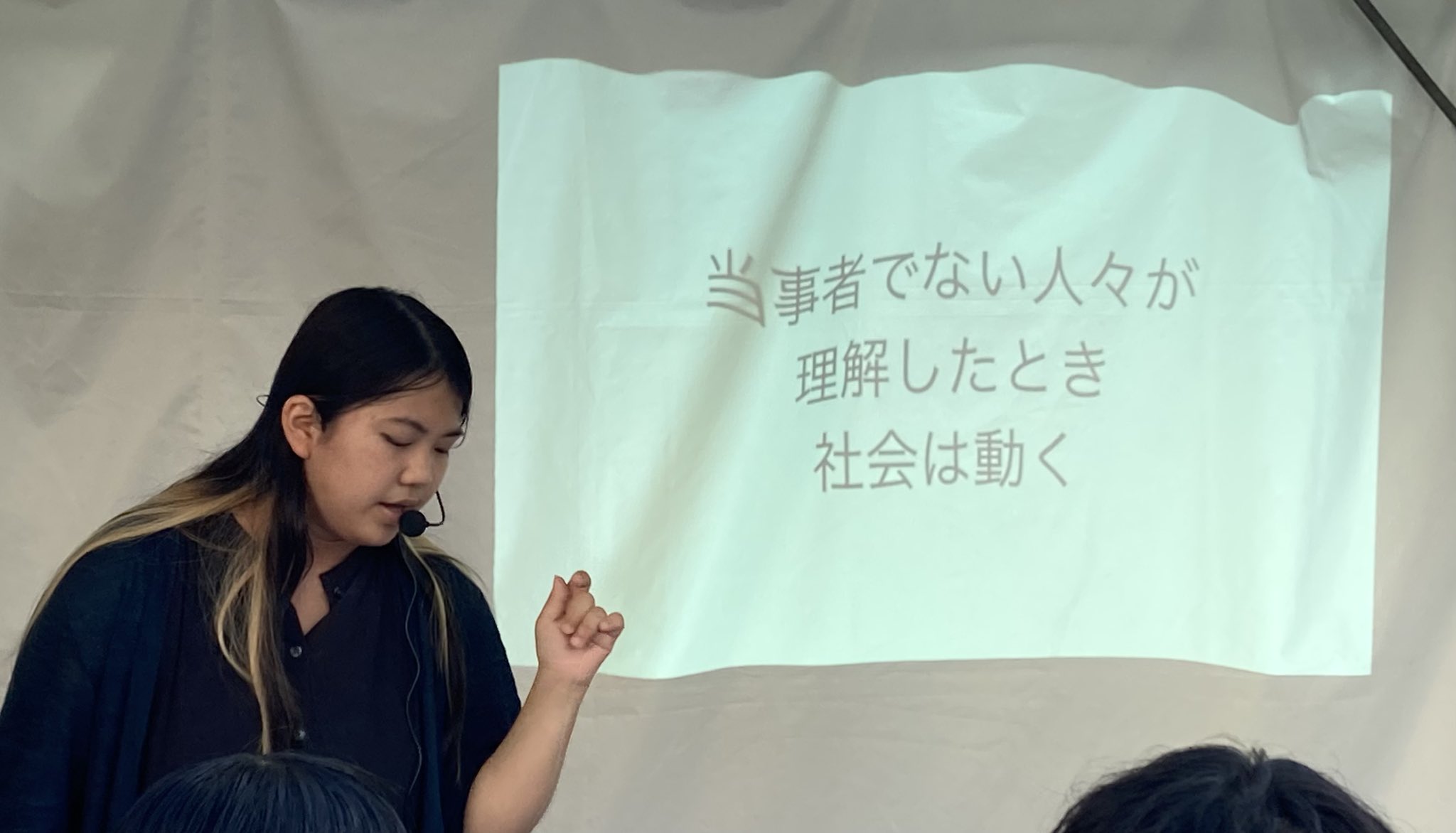
The activities that Ms. Nonaka started have expanded in various directions.
"There was a teenager my age who told me that every time they saw news about Ukraine, they were reminded of Myanmar. (I) convey both the peaceful daily life of Myanmar and the devastation of the coup, so I feel that I can make an impression on (people) because of that contrast. I also received a response from a child living in Japan who has Myanmarese roots, saying that they are glad to know about Myanmar. That was an unexpected response."
Connecting with people outside of Japan and Myanmar through Ms. Nonaka's activities was also something she did not anticipate at the beginning. "I had the opportunity to get to know people from regions and ethnic groups of whose situation I was ignorant. I learned that there are various conflicts and problems in the world," says Ms. Nonaka. She is also interested in getting involved in cross-border initiatives in the future.
"I would like to organize a project to consider conflicts and peace in the world. Like the people in Myanmar, I never know when I might become party to a dispute. I would like to see a society in which such involved parties and minorities are protected. To achieve this, I would like to continue to expand my activities while continuing to study law and other subjects at university."
With this strong determination, Ms. Nonaka will continue her activities.
*This article is based on information available at the time of the interview. For the latest information, please contact the organization directly.
